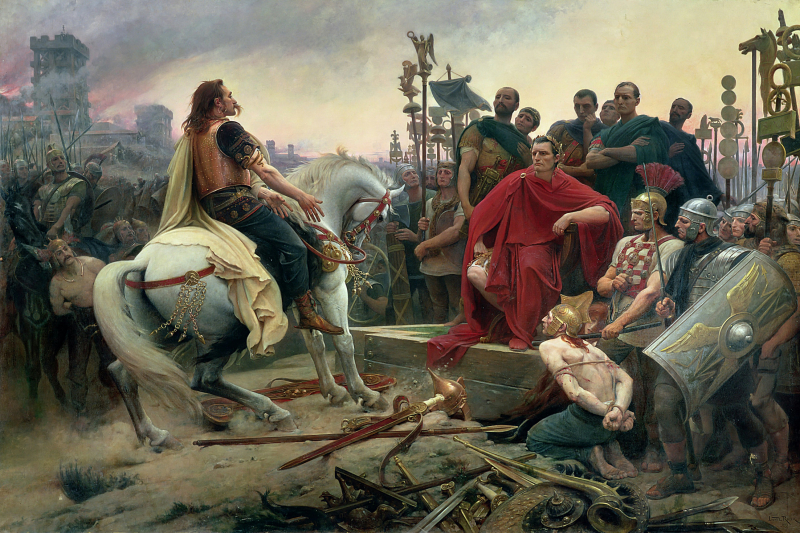Julius Caesar ignited a violent civil war
The Roman Senate ordered Caesar to dissolve his army and return to Rome once his tenure as governor of Gaul had come to an end. Caesar decided to revolt against Pompey and maintain his pride out of concern that he would face treason charges and live a dishonorable life. This is also one of the most interesting facts about Julius Caesar.
This choice led Caesar, one fateful day in 49 BC, to defy the Senate's directives and cross the Rubicon river. He started a terrible civil war that would last nearly five years by illegally crossing into Italy. But this one action would alter the path of Roman history irrevocably.
Along with his strong and well-trained legions, Caesar pursued his adversaries to the heel of Italy and eventually to Greece. Although it seemed like Caesar always had the upper hand over his adversaries, at one point during the Battle of Pharsalus, Caesar's men were compelled to retire.
Pompey eventually escaped Egypt despite this one-time setback, where he was killed at the king of Egypt's order. Caesar enjoyed his successes after the Civil War was over and grew to be even more powerful. In 44 BC, when he eventually made it back to Rome, he installed himself as dictator for life.












